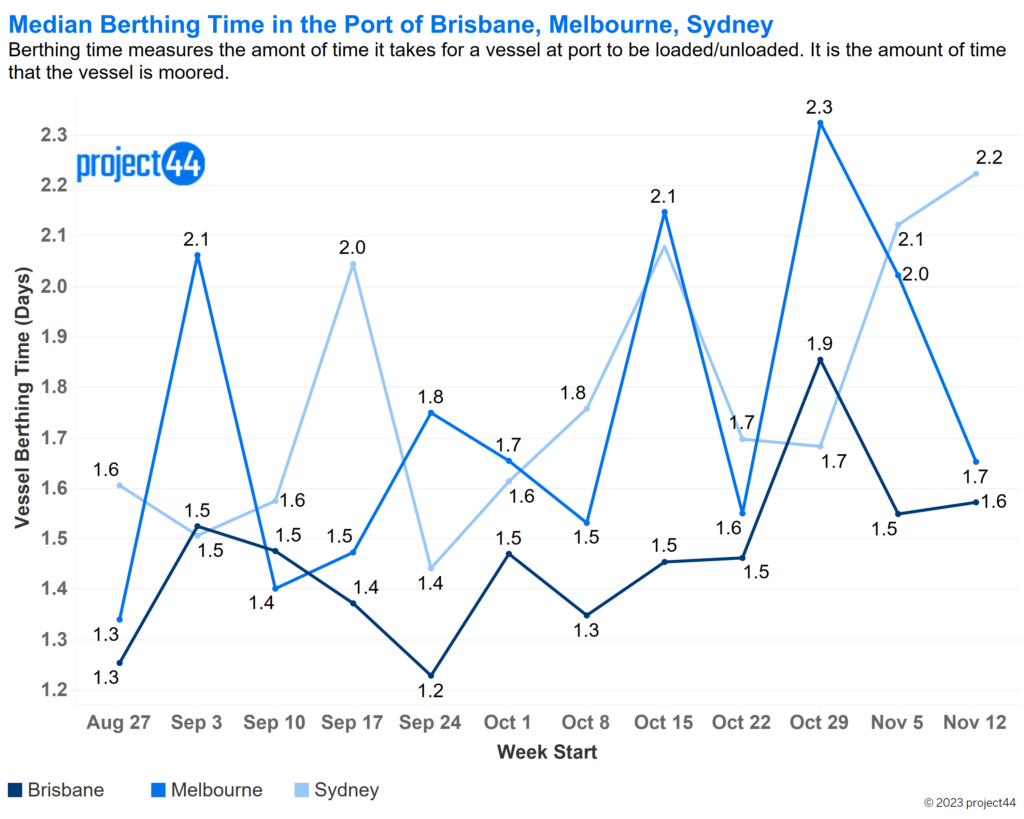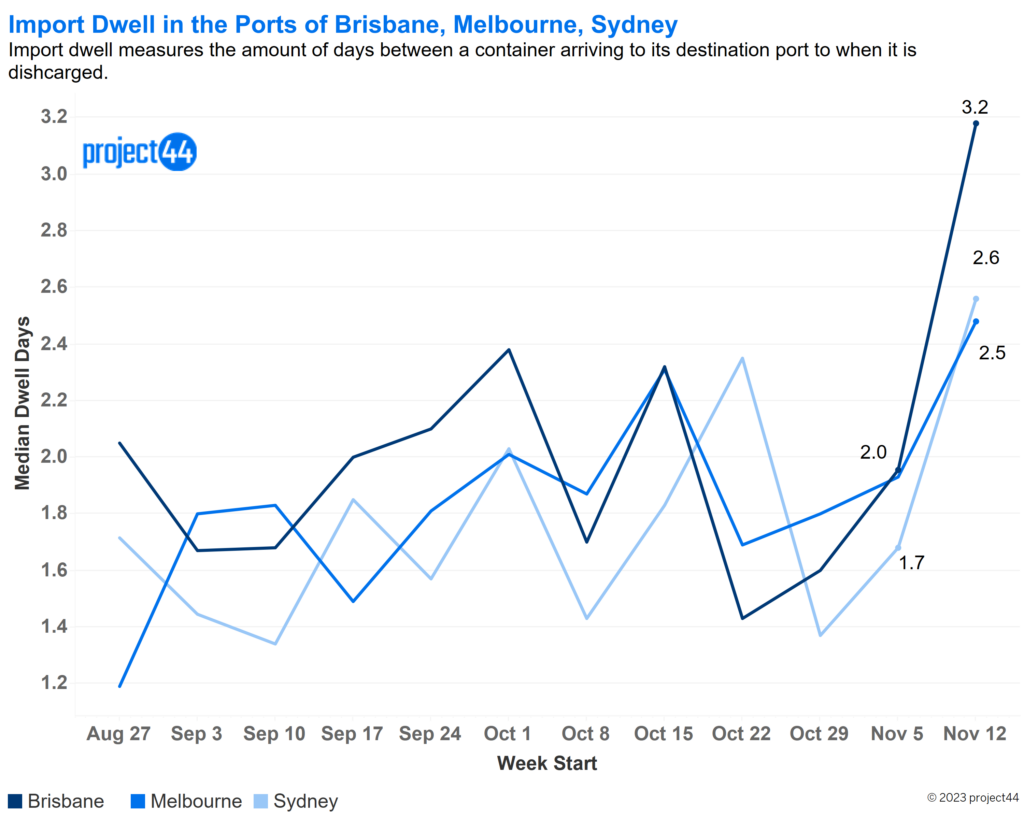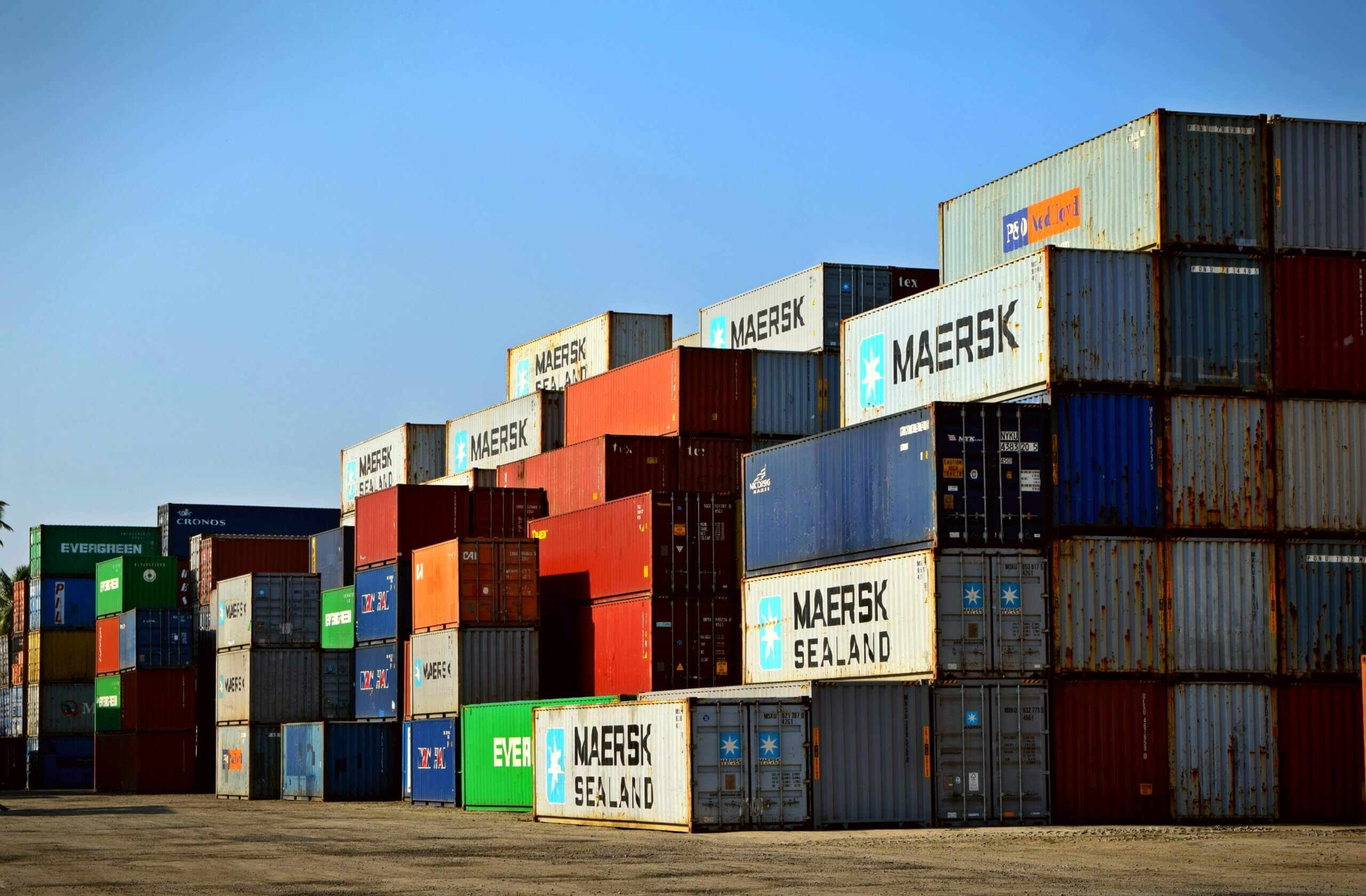Summary:
- A cyberattack against DP World disrupted port operations throughout Australia.
- The cyberattack has not impacted ports ability to process vessels, as illustrated by minimal impact to berthing time.
- Import dwell has been impacted by the cyberattack, with increases as much as 60% in some ports across Australia.
Cyberattack Disrupts DP World Operations in Australian Ports
DP World, a major Australian container terminal operator, faced a cyberattack spanning from November 10th to 13th, resulting in temporary service disruptions. While operations have now resumed, an estimated backlog of approximately 30,000 containers has been incurred. Despite ongoing investigations and the implementation of heightened security measures, DP World cautions that potential disruptions may persist.
Vessel Berthing Times at Australian Ports
Analyzing the weekly median berthing times at Brisbane, Melbourne, and Sydney ports as of November 15th, the impact of the cyberattack seems limited. Although the Port of Sydney experienced a recent high in berthing time, Brisbane’s median remains below that of the week of October 29th, and Melbourne is trending lower than the previous week. While there are slight upticks, the cyberattack has not significantly impeded the ports’ vessel processing capabilities.

Import Dwell Throughout Australia
The cyberattack’s notable impact lies in the extended time taken to discharge containers from vessels. Weekly median import dwell times indicate a week-to-date increase, with Brisbane witnessing a 60% rise, Sydney experiencing a 53% increase, and Melbourne noting a 32% increase due to the disruptions. This is due to the temporary inability of containers to be discharged from the ports, so while they were able to be unloaded from vessels, they were not able to be picked up from terminals.

Outlook and Recommendations
As port operations gradually return to normal, an anticipated backlog may prolong port dwell times. Despite the relatively short duration of the disruption and the current slower season for ocean freight, project44 expresses optimism that vessel berthing times will not see lasting impacts.
This incident marks the second major cyberattack on ports this year, following the Port of Nagoya. It underscores the importance of comprehensive cybersecurity education for staff, the utilization and maintenance of effective cyber safety measures, and the necessity of contingency plans for manual processing during disruptions. While technology enhances supply chains, these events emphasize the need for a robust and resilient cybersecurity infrastructure.
For questions or comments:
press@project44.com
Disclaimer: The information conveyed herein, shared solely for summary and not contractual purposes, comes from both project44 and third-party reporting. The project44 data does not include all available market information, and project44 has not undertaken to independently verify the third-party reporting. Similarly, this type of data changes from day-to-day. Accordingly, the reader should not rely on this reporting to make any business decisions, and project44 expressly disavows any liability arising from any such reliance.



